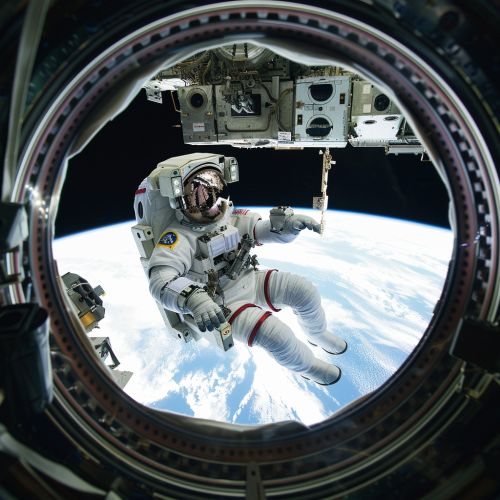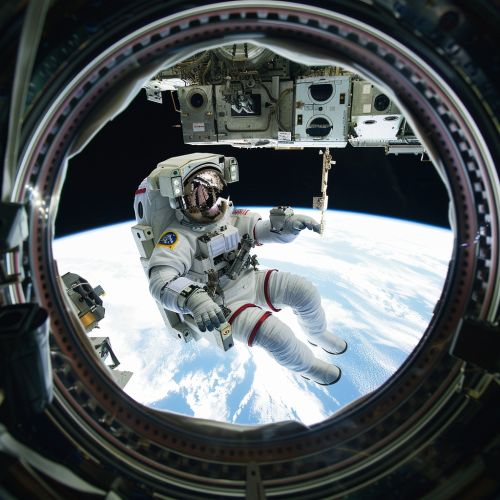Effects of space travel on the human body
Introduction
Space travel has long fascinated humanity, but it presents numerous challenges, particularly concerning the effects on the human body. The unique environment of space, characterized by microgravity, radiation, and isolation, can have profound impacts on human physiology and psychology. This article delves into the various effects of space travel on the human body, providing a comprehensive and detailed exploration of the subject.
Microgravity and Its Effects
Microgravity, or the condition in which objects appear to be weightless, is one of the most significant factors affecting astronauts. The human body is adapted to Earth's gravity, and the absence of this force leads to several physiological changes.
Musculoskeletal System
In microgravity, the musculoskeletal system undergoes significant changes. The lack of gravitational force results in muscle atrophy and bone density loss. Muscle atrophy occurs because muscles no longer need to support the body's weight, leading to a decrease in muscle mass and strength. Bone density loss, or osteoporosis, is caused by the reduced mechanical loading on bones, leading to a decrease in bone mineral density and an increased risk of fractures.
Cardiovascular System
The cardiovascular system also experiences changes in microgravity. The absence of gravity causes a fluid shift towards the upper body, leading to facial edema and a reduction in plasma volume. This fluid shift can result in orthostatic intolerance, where astronauts may feel dizzy or faint upon returning to Earth's gravity. Additionally, the heart may undergo atrophy due to the reduced workload in microgravity.
Vestibular System
The vestibular system, responsible for balance and spatial orientation, is affected by the lack of gravity. Astronauts often experience space motion sickness during the initial days of space travel, characterized by nausea, vomiting, and disorientation. Over time, the brain adapts to the new environment, but re-adaptation to Earth's gravity can also be challenging.
Radiation Exposure
Space is filled with high-energy particles from the sun and cosmic rays, which pose a significant risk to astronauts. The Earth's atmosphere and magnetic field provide protection from these particles, but in space, astronauts are exposed to higher levels of ionizing radiation.
Acute and Chronic Effects
Radiation exposure can lead to both acute and chronic health effects. Acute effects include radiation sickness, characterized by nausea, vomiting, and fatigue. Chronic effects are more concerning and include an increased risk of cancer, damage to the central nervous system, and potential cardiovascular diseases.
Countermeasures
To mitigate radiation exposure, spacecraft are designed with shielding materials, and mission durations are carefully planned. Astronauts also wear dosimeters to monitor radiation levels and take shelter in shielded areas during solar particle events.
Psychological Effects
The psychological effects of space travel are significant and multifaceted. The isolation, confinement, and distance from Earth can lead to various psychological challenges.
Isolation and Confinement
Isolation and confinement can lead to feelings of loneliness, depression, and anxiety. The lack of social interaction and the monotony of the environment can exacerbate these feelings. Crew dynamics and interpersonal relationships play a crucial role in maintaining mental health during long-duration missions.
Sleep Disruption
Sleep disruption is a common issue in space. The absence of a natural light-dark cycle and the operational demands of space missions can lead to circadian rhythm disturbances. Astronauts may experience difficulty falling asleep, reduced sleep quality, and increased fatigue.
Cognitive Function
Cognitive function can be affected by the stressors of space travel. Tasks requiring attention, memory, and executive function may be impaired, potentially impacting mission performance. Countermeasures such as structured schedules, cognitive training, and psychological support are essential to maintain cognitive health.
Immune System Changes
The immune system undergoes alterations in space, which can affect an astronaut's ability to fight infections.
Immune Dysregulation
Microgravity and stress can lead to immune dysregulation, characterized by changes in the distribution and function of immune cells. This dysregulation can result in increased susceptibility to infections and a reduced response to vaccines.
Latent Virus Reactivation
Latent viruses, such as the Epstein-Barr virus and herpes simplex virus, can reactivate in space. This reactivation is thought to be linked to the stress and immune changes experienced during space travel.
Metabolic and Nutritional Changes
Space travel can affect metabolism and nutritional status, impacting overall health and performance.
Metabolic Changes
Microgravity can lead to changes in metabolism, including alterations in energy expenditure and nutrient utilization. These changes can affect body composition, with potential implications for muscle and bone health.
Nutritional Requirements
Nutritional requirements may differ in space due to changes in metabolism and the unique environment. Ensuring adequate intake of essential nutrients, such as calcium and vitamin D, is crucial to mitigate bone loss and maintain overall health.
Vision Impairment
Vision impairment, known as Spaceflight-Associated Neuro-ocular Syndrome (SANS), is a condition observed in astronauts during long-duration missions.
Symptoms and Causes
Symptoms of SANS include changes in visual acuity, optic disc edema, and globe flattening. The exact cause is not fully understood, but it is believed to be related to the fluid shift towards the head in microgravity, leading to increased intracranial pressure.
Countermeasures
Research is ongoing to develop effective countermeasures for SANS. Potential strategies include fluid management techniques, pharmacological interventions, and the use of specialized eyewear.
Conclusion
Space travel presents numerous challenges to the human body, affecting various physiological and psychological systems. Understanding these effects is crucial for the development of effective countermeasures and the success of future space missions. Ongoing research and technological advancements will continue to enhance our knowledge and ability to protect astronauts in the unique environment of space.


